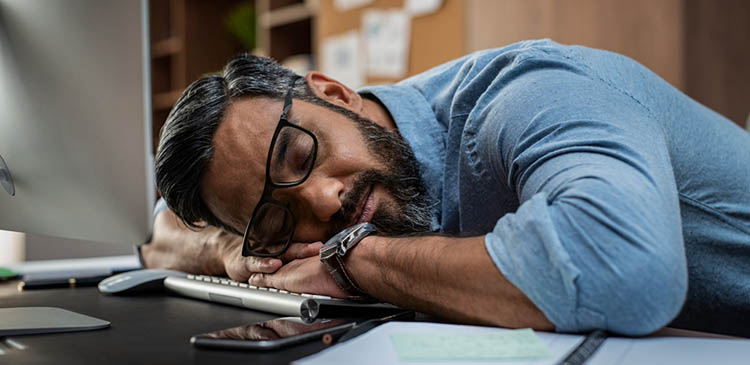According to the Centers for Disease Control (CDC), one-third of all Americans do not get enough sleep. While lack of proper rest through sleep is associated with several serious health problems like diabetes, stroke, high blood pressure, and heart disease, your eyes can also suffer tremendously from not getting enough sleep as well.
In fact, because of the rise of high focus jobs, which require hours of staring at a computer screen or behind the wheel of a motor vehicle, more and more Americans are experiencing eye fatigue. The combination of chronic eye fatigue with not getting enough sleep and therefore rest for the eyes can lead to serious vision problems over time.
What is Eye Fatigue?
Just like any other muscle or organ in the body, the eyes will become exhausted if used for extended periods of time without rest. Unlike our ancestors, who used their eyes in conjunction with their bodies to hunt animals, fish and gather fresh fruits and vegetables, many of us modern humans now spend our days using only our eyes and brains. While headaches and tiredness are the results of overusing our brain, overuse of the eyes can be more subtle. Signs of eye fatigue include red eyes, blurry vision, bags under the eyes, sensitivity to light, dryness and irritation, eye twitches or spasms, and even eye pain.
Why is Sleep Important For the Eyes?
It is while we are sleeping that the process of restoration and rejuvenation happens at the cellular level throughout our body, including our eyes. Old or damaged cells and proteins are discarded and replaced by new ones and muscular tissue that is strained is repaired and strengthened. The tear ducts of the eyes are also replenished while you are sleeping, which improves the natural and vital daily lubrication process of your eyes.
Because sleep goes through several cycles and these processes happen at different places in the cycle if you don’t get a full nights sleep these processes do not have time to complete themselves. This means eye fatigue can be carried over to the next day and get progressively worse. Fatigued eyes can lead to eye problems including Anterior Ischemic Optic Neuropathy (AION), which can damage the optic nerve and eventually cause vision loss.

How To Make Sure You Are Getting Enough Sleep
Doctors and ophthalmologists recommend that people get at least seven hours of sleep a night as part of their daily health regime. The best way to ensure this is to have set bed and rising times that are at least 7 hours apart. It’s also a good idea to cut out caffeine intake during the later part of the day, as that can lead to the inability to fall asleep, even if the body and brain are tired.
If you are feeling tired in the afternoons, a much better option than a cup of coffee is a short cat nap, also known as a power nap. These 10 to 15 minute snoozes not just give your eyes rest from light, air, and focus and envelope them in the soothing moist walls of the eyelids, they also have a slew of health benefits as well. Studies show that short naps actually reboot our brains and get rid of fatigue and tiredness. This means that for those with jobs that may be causing eye fatigue, both getting more sleep at night and resting the eyes with a short nap during the day may be able to do wonders.
Posted June 18, 2019 by Silverstein Eye Centers